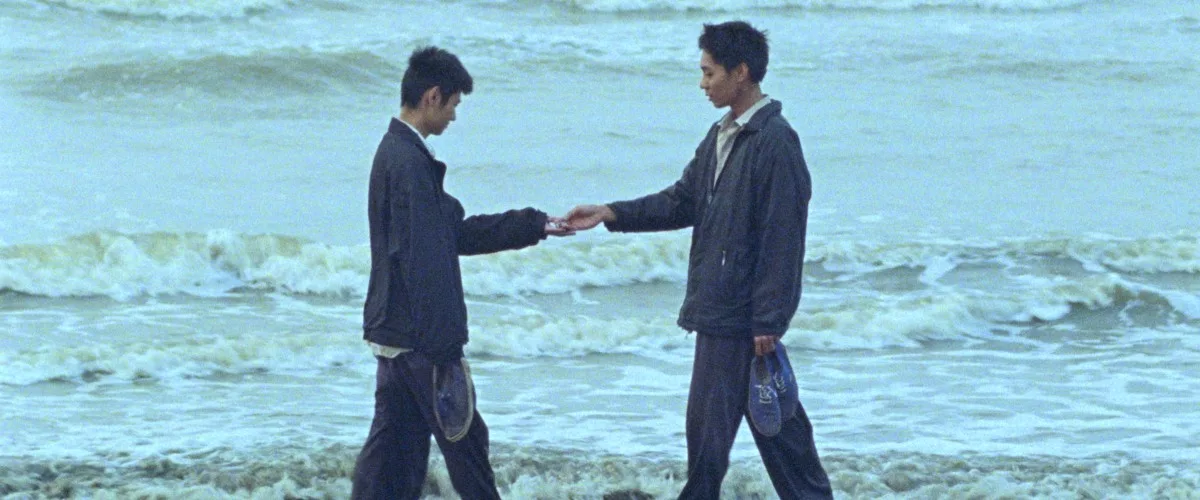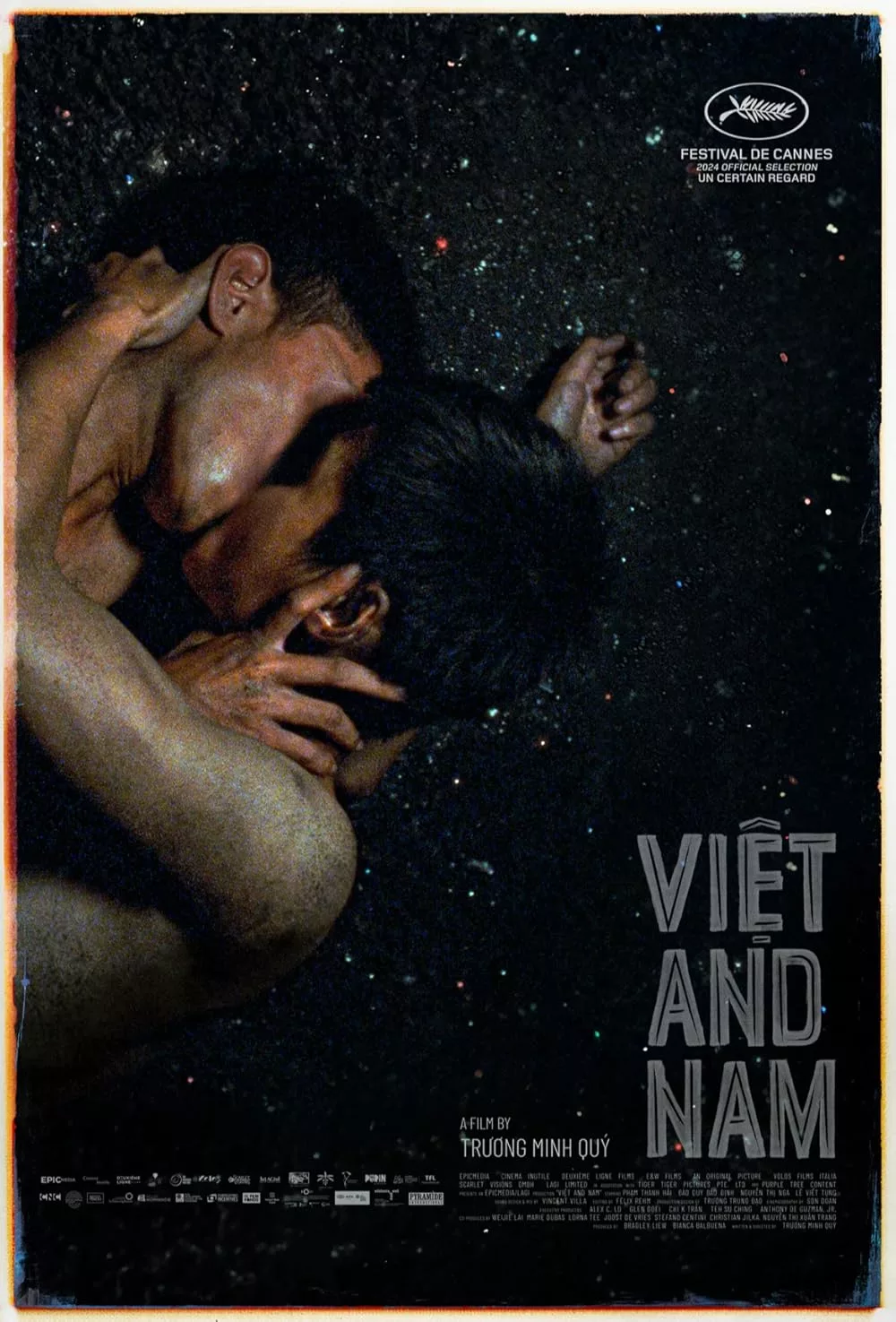The harrowing Vietnamese psychodrama “Việt and Nam” begins as a slice-of-life narrative about the title characters, a pair of coal miners played respectively by Đào Duy Bảo Định and Thanh Hải. Smeared in coal dust, Việt and Nam pine for each other even as they regularly meet in secret. Nam wants to leave the country and Việt doesn’t understand why. Their frank intimacy can be seen in tender gestures, like a close-up of clasped hands, and some sex, particularly in a bracing early scene that includes full frontal nudity. You’ll likely remember the sex more than the little gestures, but they both resonate on the same emotional frequency. “Việt and Nam” only initially looks like something that you might expect to find on John Waters’ Best of the Year list. Soon enough the movie becomes a gentle romance about loving the dead.
“Việt and Nam” could be a ghost story if you nudged its plot—and characterizations and style—into more generic territory. Real-life horrors trouble both narrative tributaries, specifically the Vietnam War and the deaths of 39 Vietnamese refugees who, in 2019, were found in a refrigerated truck near London. “Việt and Nam” juxtaposes these stories in a lyrical memory play about mortality, grief, and the gravitational pull of one’s homeland.
A mysterious calm unites both halves of “Việt and Nam.” The two lovers yearn for each other with an assumed, unflashy intensity that parallels the dreamy drift of the movie’s war-related sub-plot, which follows Nam and his mother Hoa (Nguyễn Thị Nga) as they look for his father and her husband, a missing soldier. These characters doggedly resist easy stereotyping, like when Hoa suggests that Nam bring his partner home more often or when she tells him that she barely knew his dad before they married. In both cases, Nam appears surprised, but not phased. The divided life he’s chosen for himself now seems routine enough as to be unremarkable. He’s pulled further out of his present-tense stupor as the movie progresses and its pace slows down to match the characters’ emotional arrest.
It’s maybe better if you know about the real-life traumas that writer/director Trương Minh Quý takes inspiration from since that foreknowledge will only help you to finetune your expectations. Death isn’t a fact of life here, it’s an irresolvable trauma and a senseless reality that we all must come to terms with. Then again, the characters’ startling reckoning with death only determines the gravity and not the tone of “Việt and Nam”’s drama.
Quý’s fluid narrative and style distinguishes itself, given his characters’ unique relationship to their bodies and their land. Earthy details routinely set the pace both on screen and on the soundtrack, whether it’s the steady drip of rain or mine water on the soundtrack or the omnipresent veneer of black dust and light brown mud. In this light, the soft hiss of chattering cicadas is just as meaningful as the empty tables at a restaurant where Việt surprises Nam with a birthday cake. “What if someone sees us?” Nam asks. “I’ll pretend we’re brothers,” Việt replies.
Việt and Nam are not related, of course. Still, they do share a deliberate resemblance that Quy hopes, in a directors’ statement, might give their story a “mythical resonance” as “two persons who share everything, but soon they must face a future of separation.” It’s weirdly helpful to know that “separation” also likely means “death” in this context. “Việt and Nam” locates its drama in the doomed lovers’ slow, unsteady progress toward a shared fate that appears so sure as to be preordained. But while a future together doesn’t seem like a real option to either of the two title characters, Quy’s drama affords them a little solace in the tense, measured lead-up to a revelatory conclusion.
Before then, time slows and contracts until it seems to come to an eerie stasis for both Hoa and Nam. Grief and separation mean different things to two people at such different stages in their lives, with two different connections to their home country and its history. It’s still impossible to escape that shared context, making the characters’ avoidance of morbid or just troubled thoughts that much more affecting.
Death—and specifically an unrecognized death away from your loved ones—is the subject, even when it’s not spoken about or represented directly. An uneasy yet steady drive to escape both the confines and comforts of what is already known keeps the characters moving forward, as they all struggle with outdated self-images of themselves as retainers of the past. They hold their breaths and dream of a reconciliation that may never come. An alternately serene and overwhelmingly poignant lament, “Việt and Nam” gets under your skin and lingers there.




















